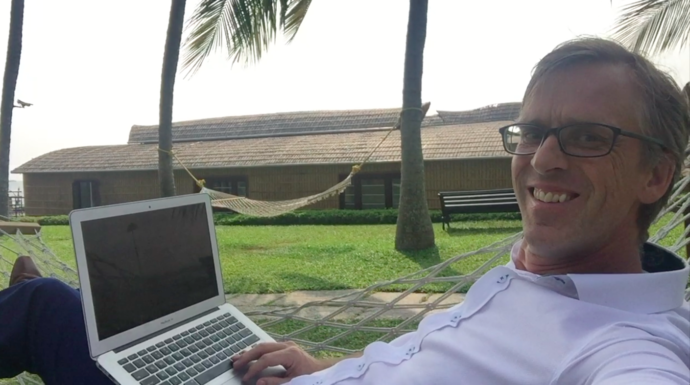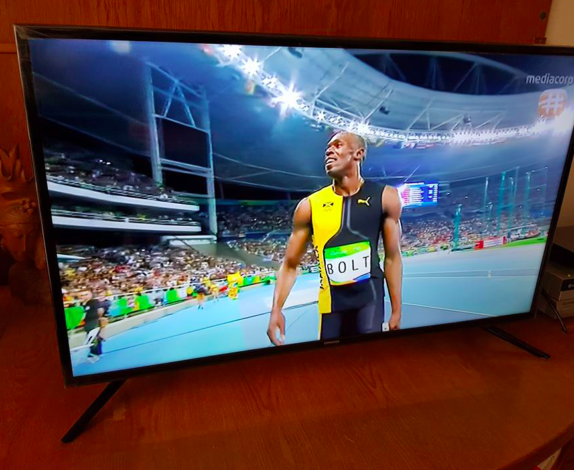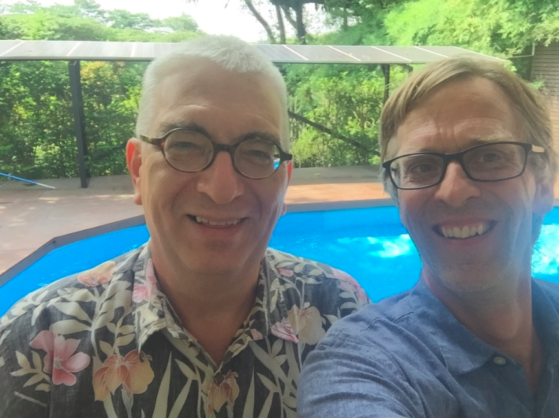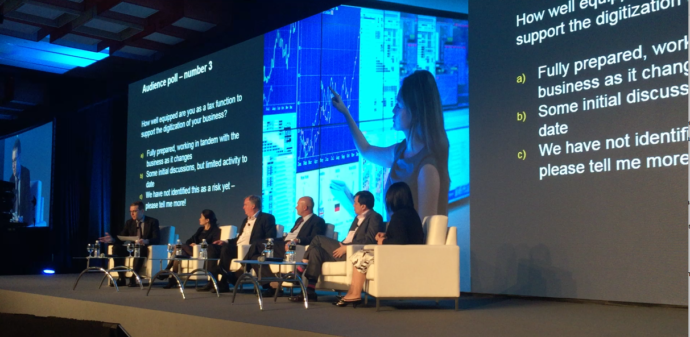
In the speaker industry there seems to always be a big focus on making it BIG by going to the USA.
That is were the BIG conferences are, where the BIG audiences are, where the big money in speaking is.
And yes, that is true. The US is the place to be for being a speaker right now.
But if you are playing the long game, then Asia is the place to focus on as a speaker.
Asia has 60% of the worlds population.
Asia’s share of global GDP is already around 40% (USA’s share is well below 20%…)
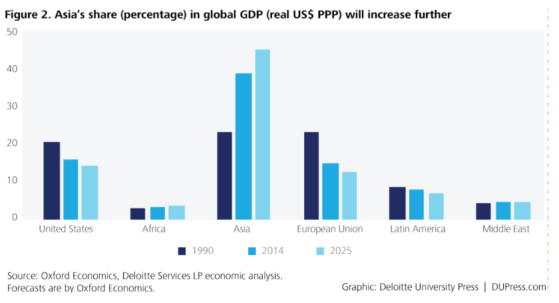
And Asia is where the growth is happening.
Yet, very, very few professional speakers have chosen to focus on Asia.
And yes, it is true that the speaking and conference market in Asia has not been as developed as other industries, but it is quickly changing.
I moved to Asia more than 10 years ago, after having had 10 years of success as a speaker in Sweden/Scandinavia. I moved because I saw potential in the Asian speaking market.
When I arrived there were very few Asian Conferences since the people in the different Asian countries could not speak good enough English which meant there were really no reasons to have a conference since the delegates could not speak to each other. (I remember a conference I did in China in 2007 for a client who had invited their Asian clients where they had 20 (!) translators translating the sessions into different Asian languages.)
But the quality of english in Asia has drastically improved.
And now more and more Asian conferences are taking place with people flying in from all over Asia.
And these conferences are growing and growing every year.
I can see it on the size of the audiences – and on the size of the projector screens…
When arrived in Asia ten year ago you would be happy if you got a well lit screen. Over the years the quality of the screens (and everything else around the organisation of a conference) has improved and now I have seen some of the most professionally put together conference I have ever seen happen in Asia.
The conference I spoke at today is a perfect example of this trend. Today I was the (only) keynote speaker at the EY Asia/Pacific Tax Symposium.
968 delegates from 363 companies and 36 countries attended the conference at the gigantic Marina Bay Sands Convention Centre.
EY has organised this event for ten years, and this year was the largest so far.
And the computer screens were just gigantic!
I measured it and got it to be a total of 22 meter wide (and about 4-6 meters high). All high definition computer screens (not projectors).
If the quality of the conferences, the number of delegates, the budget for organising these conferences in Asia is increasing every year than where will the Asia speaking industry be in five years time? In then years time? It is just going to be huge.
And what speakers outside Asia do not understand is that Asian audiences do NOT want someone who just flew in from Europe or America to tell his (or hers) western examples and western stories!
They want someone who understands, knows and connects with Asia – and with the rest of the world. They want speakers who have a GLOBAL mindset (not a western – or an Asian – mindset.)
As a global speaker who comes from the West, has lived in Asia for over ten years – and who spoke in 24 different countries on 4 continents in just in the last 12 month alone, I have built an Asia based, global speaking business not around what the speaking world looks like today – but what it will look like tomorrow.
And many of my assignments this year have been Asian conferences or global conferences held in Asia (or Global conferences held elsewhere where they wanted a speaker who had knowledge of both east and west.)
As a matter of fact in 2016 I did 24 different global or international conferences like that. around the world.
I am amazed that not more speakers have built their long term strategy around where the growth of the business world – and speaking industry – is most likely to happen.
The focus of commerce, business and power is shifting to the East. So is the speaking industry.
If you want to be a global speaker you have to understand, know – and speak in – Asia.
